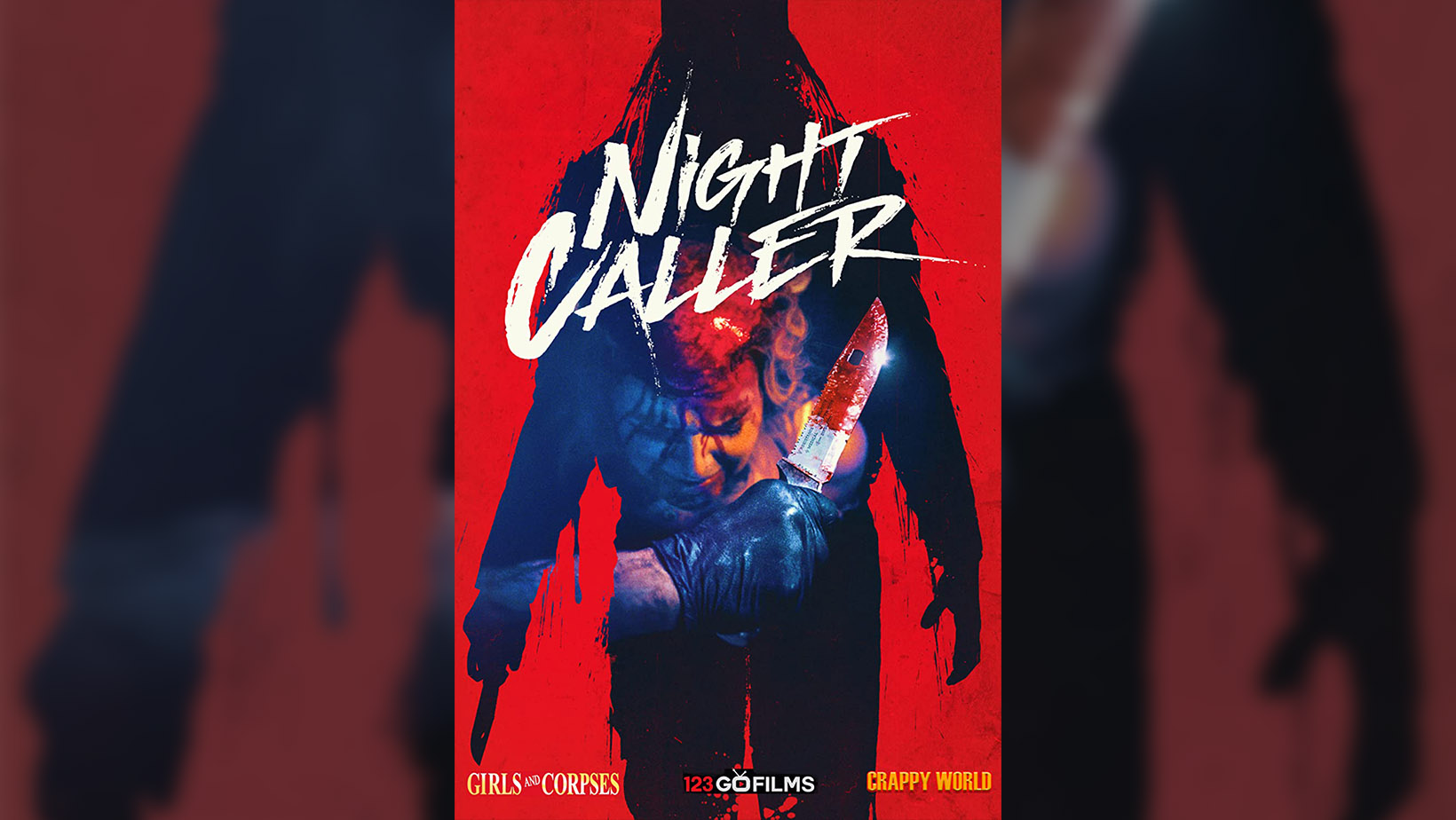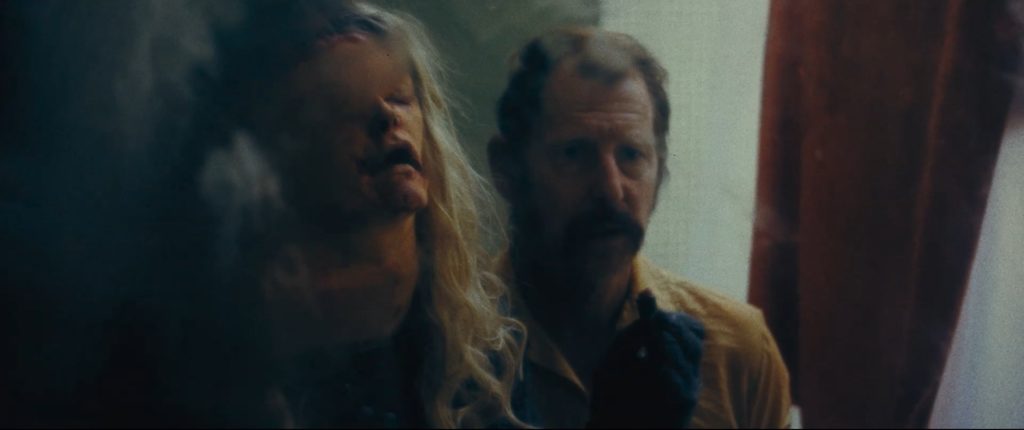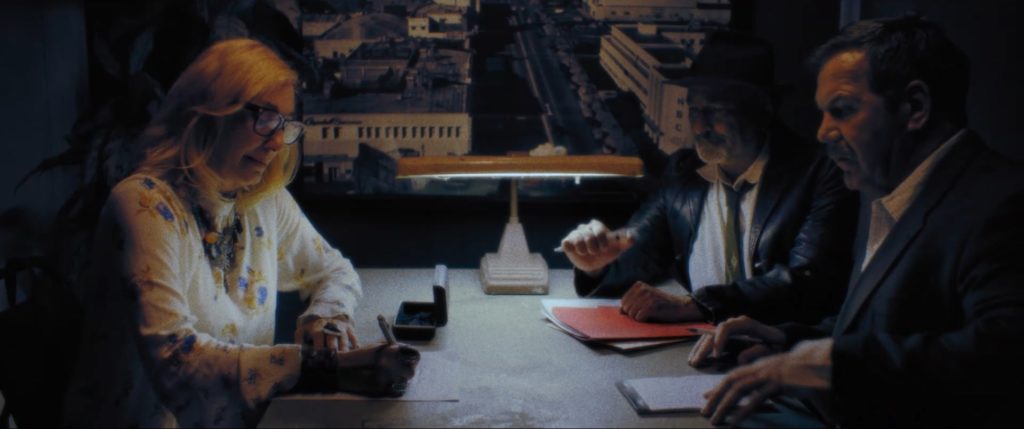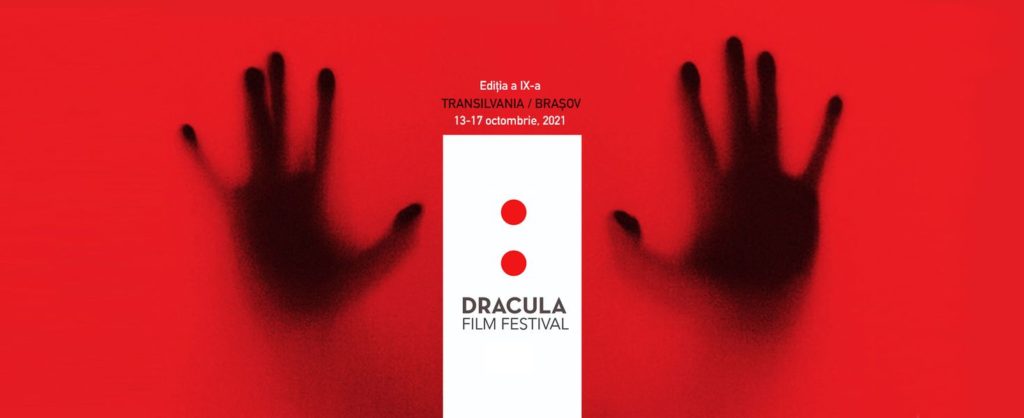
There are movies that are sometimes too much even for the seasoned horror fan – for the 2012 version of myself, one such movie was the remake of William Lustig’s Maniac starring Elijah Wood, one that felt so downright evil that it seemed like a snuff film. It took me 8 and a half years to watch it and appreciate it, and doing so still felt like an uphill battle. The spirit of Maniac (although perhaps more the original one than the remake) lives on in Night Caller, Chad Ferrin’s serial killer movie which found its way into the Dracula Film Festival competition this year.

Night Caller feels problematic from the get-go: we are introduced into the world of telephone psychics, as we watch the main character, Clementine (Susan Priver) having a vision of a woman getting stabbed by a killer. The vision comes to pass and the killer calls Clementine directly and asks her to foretell his future, taunting her with standard serial killer monologue. Clem works for a Chinese woman, Jade (Bai Ling, doing a manic comedy routine that sometimes feels so ‘Hollywood racist’ it actually resembles Mickey Rooney’s Mr. Yunioshi from the Breakfast at Tiffany’s film – though, at least in this case, it is an actual Asian woman going crazy with how Asians were often portrayed by Old Hollywood), who also has the gift. Together with Clem’s bedridden film buff dad, the two women must work together to stop the killer.
Night Caller begins to feel like a late-night 80s homage that feels stuck in the 60s. The main themes are the legacy of evil men (contrasted with the legacy of marginalized women), sharing a psychic connection with a killer, but more importantly, this is a work of deliberate intertextuality – there are not only references to Maniac as the killer scalps and wears the faces of victims, but also Dementia 13, as well as a 1932 Laurel and Hardy film from which a staircase very important to the plot is identified. The killer takes a woman’s hair and says something in the lines of ‘this will be a gift so that my boy might live’. Immediately, bells rang in my brain saying ‘Maury and Bustillo’s Among the Living‘! – but trust me, this movie is not the story of a father trying to keep his son alive and well, in any way – it is a lot more disturbing than that.
I don’t want to spoil the killer’s rationale and history, but it is inevitable that I will make at least some allusions to them in order to defend this movie – or rather, still make you want to watch it despite its misguided ways. What does it need defending from? There is misogyny so blatant here that it also feels from the 60s or 70s – an attempted r*pe puts a terrified woman in the killer’s crosshairs, and a ne***philia scene soon follows. Women are often identified by gendered pejoratives and are constantly being threatened. Homophobic slurs abound. Still, because Ferrin seems to be doing all of this on purpose, I can’t dismiss his work that easily.

The film has a weird tongue-in-cheek vibe that manages to quell some of the most stomach-churning developments, like the killer actually being the son of another serial killer, who only killed little girls and did his best to turn his son into one (this will be the point where most people would have jumped ship). An encounter between face-wearing son and ghost-dad – given permission by the Devil himself to advise his boy – is so riotously funny, with Lew Temple chewing the scenery, it feels downright demented, as it resembles a certain toxic father-son relationship from American Beauty, with the same expletives being used, but with a lot more castration. And so is the movie’s climax, where the killer wreaks havoc on a pair of hapless cops, or a man comically survives a scalping and lives to tell the tale. There are delightful flashback scenes so meticulously constructed it seems like the movie is saying ‘forgive me, forgive me, and please like me, at least I have passion!’
As a conclusion, I feel guilty enough to say that I enjoyed Night Caller, and a big reason for that is that I enjoyed Maniac, and at times I felt the same intensity and dedication to making the viewer feel sick coming from this one, albeit in smaller doses. As a work of many allusions to past horror, and cinema in general, it more than does the job, although those turned-off by archaic gender and racial attitudes and the devil-may-care attitude towards who might be offended will find it a tough proposal.

We watched Night Caller as part of our Dracula Film Festival coverage.

More Festival Coverage
“My name is Roxy, but the village girls call me toxic” After explaining how womankind found themselves alone in the land known as ‘After Blue’, we meet Roxy whose introduction… Meeting your partner’s family for the first time can be a drag, having to find out how well you get along in the family dynamic or learn some truths you… My Mother’s Eyes is a 2023 Japanese science fiction psychological thriller, written and directed by Takeshi Kushida. No stranger behind the camera, Kushida is also the creative mind behind the… Angel’s Egg (Tenshi no Tamago), a 1985 sci-fi fantasy anime film directed by Mamoru Oshii and illustrated by Yoshitaka Amano. Oshii is best known for directing the cult classic adaptation… Bringing the Greek Weird Wave touch to German cinema is Der Bunker director Nikias Chryssos, who in his second feature film does at times leave the impression that he’s working… Anx and Cass are on opposite ends of the scale when it comes to personality. Anx is overly cautious while Cass grabs life by the balls and makes the most…After Blue (Dirty Paradise) Film Review – An Erotic, Sci-fi, Coming of Age Tale
Homebound (2021) Film Review – Family Secrets Can be Deadly
My Mother’s Eyes (2023) Film Review – Beyond Sanity [FrightFest]
Angel’s Egg (1985) Anime Review – GKIDS’ 4K restoration [Fantastic Fest 2025]
A Pure Place (2022) Movie Review – Children Of Elysion
Else (2024) Film Review – Dissolving into the Infinite Unknown [Fantastic Fest]


![My Mother’s Eyes (2023) Film Review – Beyond Sanity [FrightFest]](https://www.grimoireofhorror.com/wp-content/uploads/2023/07/My-Mothers-Eyes-cover-photo-365x180.jpg)
![Angel’s Egg (1985) Anime Review – GKIDS’ 4K restoration [Fantastic Fest 2025]](https://www.grimoireofhorror.com/wp-content/uploads/2025/09/Angels-Egg-cover-365x180.jpg)

![Else (2024) Film Review – Dissolving into the Infinite Unknown [Fantastic Fest]](https://www.grimoireofhorror.com/wp-content/uploads/2024/09/Else-cover-365x180.jpg)